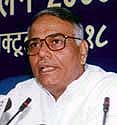Banking sector reforms to continue
28 Feb 2002
 Public sector banks recovered Rs 12,860 crore in 2000-01 as compared with Rs 9,883 crore in the previous year and net NPAs as percentage of net advances came down to 6.7 per cent as on 31 March 2001, as compared to 7.4 per cent in the previous year.
Public sector banks recovered Rs 12,860 crore in 2000-01 as compared with Rs 9,883 crore in the previous year and net NPAs as percentage of net advances came down to 6.7 per cent as on 31 March 2001, as compared to 7.4 per cent in the previous year.Twenty-nine debt recovery tribunals and five appellate tribunals have been set up. As on 30 September 2001 the DRTs had disposed of 18,703 cases involving Rs 14,026 crore. Recovery made was Rs 3,527 crore.
To help banks and financial institutions to make provisions for NPAs as required by the RBI additional fiscal relief is being offered.
A new bill on banking sector reforms will be introduced in the parliament to strengthen creditor rights through foreclosure and enforcement of securities by banks and financial institutions. This bill will also enable securitisation for money locked up in long-term loans.
A pilot asset reconstruction company will be set up by 30 June 2002 with the participation of public and private sector banks, financial institutions and multilateral agencies. This company will initiate measures for taking over non-performing assets in the banking sector and also develop a market for securitised loans.
The Deposit Insurance Credit and Guarantee Corporation will be converted into the Bank Deposits Insurance Corporation (BDIC) to make it an effective instrument for dealing with depositors’ risks and for dealing with distressed banks. Appropriate legislative changes will be proposed for this purpose.
The government proposes to make legislative changes to corporatise IDBI within the coming year. IDBI’s tier-one capital will be strengthened by conversion of existing IBRD and NIC (LTO) loans in to appropriate long-term instruments.
Consequent to certain amendments made in the year 2000 in the Companies Act, 1956, directors incur disqualification for election in the case of certain defaults by the company. Nominee directors of public financial institutions and banks will be exempt from this provision.
A provision of Rs 1,300 crore is proposed for recapitalisation of Indian Bank.
Foreign banks are permitted to operate in India as fully owned branches with specific permission of the Reserve Bank of India. It has now been decided to give an option to foreign banks to either operate as branches of their parent banks or to set up subsidiaries. A foreign bank will have to choose only one of the two options.
The cooperative credit structure has low capital adequacy and high NPAs and is in urgent need of reform. Reform measures such as the adoption of a Model Cooperative Act, removal of dual control between state governments and the RBI, regular conduct of elections, larger stake of the members, professionalisation of management are needed to be adapted.
The recapitalisation amount will be brought in by the central and state governments along with increases in share capital of members. To start the process the centre is making a token provision of Rs 100 crore and depending on the pace of reform, provision of additional funds will be considered.



















